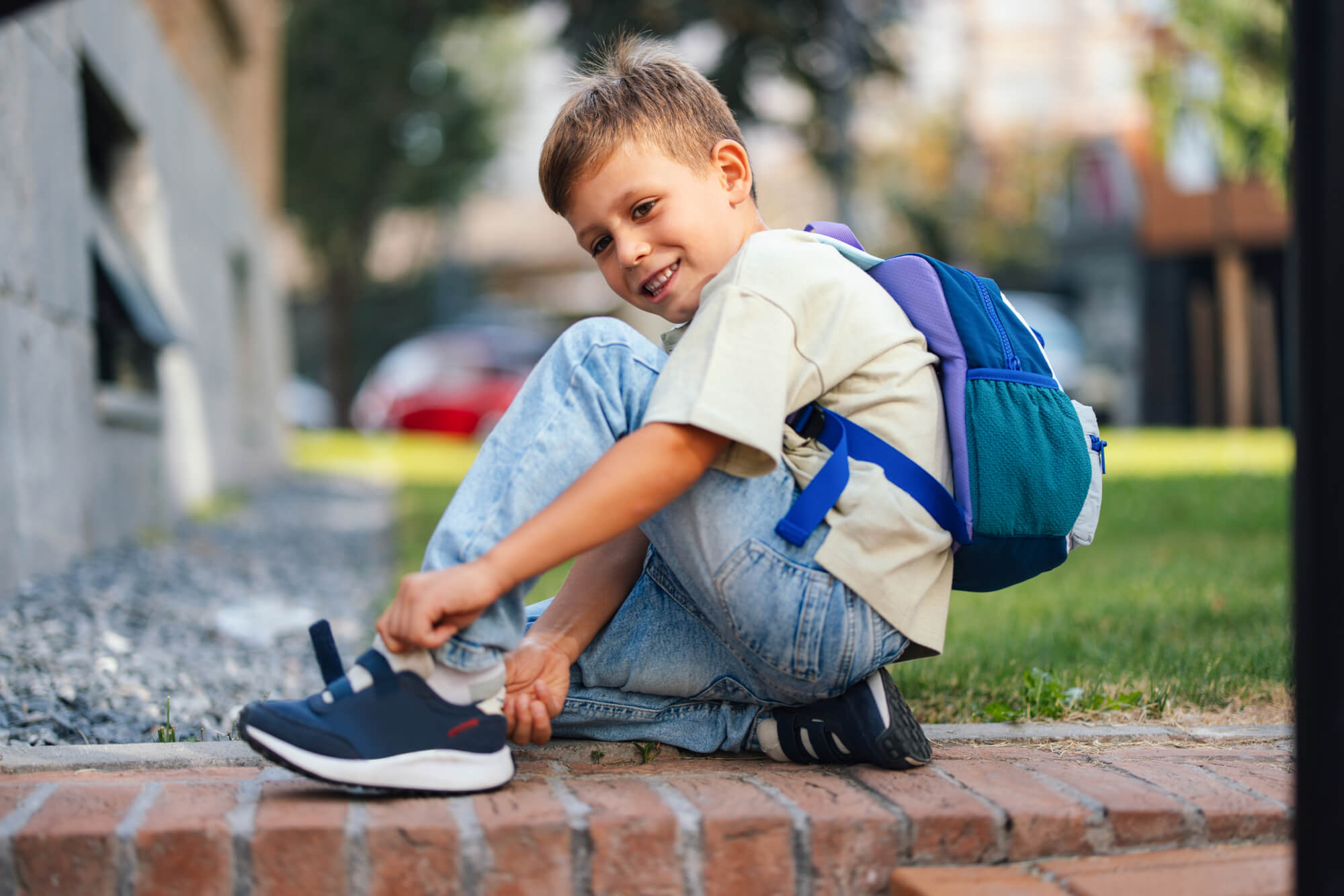Top Tips – Supporting Children to Take Their First Independent Steps

For parents the prospect of letting their child(ren) take their first independent steps can be daunting. Whether it is preparing for trips, sleepovers or them going out alone, it can be hard to let go, but developing independence is a natural and essential part of life.
For parent and child alike, it will inevitably make both feel a little excited and worried when getting ready for a school trip, an overnight stay at a friend’s house, or their first time venturing out. That’s completely normal. Well-supported, moments like these bring incredible opportunities for personal growth. Still, as much as giving them freedom is important, they have to be ready to keep themselves safe.
Parents and carers can be supportive in preparing their children for these experiences and, where appropriate, working together with school staff and other trusted adults can make them as positive as possible. Teachers can support this preparation by establishing expectations, building safe environments, and ensuring that children know what to do if anything makes them anxious.
Why Independence Needs to be Managed Carefully?
Being away from home, even for just a night or two, brings exciting new challenges. But it also creates situations children may not have faced before.
They might:
- Meet unfamiliar people or face new social situations
- Feel unsure about how to ask for help
- Experience peer pressure to take risks
- Or, in rare cases, become vulnerable to unsafe adults or situations
That’s why giving children space doesn’t mean leaving them unprepared. Clear, thoughtful planning can help them take safe steps forward.
Here are my top tips for parents to make this a positive, manageable and safe experience:
- Start Honest Conversations
- Talk to your child about what’s coming up. Where will they be? Who will be in charge? Discuss how they feel about the prospect of the upcoming event. What should they do if they feel uneasy? Keep the tone calm and reassuring as children pick up on your emotions. Staying positive helps them feel confident, too.
- Build Up Slowly
- Independence doesn’t have to happen all at once. Begin with smaller steps, like a short visit to a friend’s house or joining an after-school club. Gradually extending their comfort zone helps them (and you) adjust naturally.
- Teach Simple Safety Rules
- It’s important they know how to spot when something isn’t right. Talk about ‘safe’ adults they can approach, how to reach you, and when it’s okay to say no even to adults or friends if they feel uncomfortable.
- Encourage Them to Speak Up
- Being assertive doesn’t always come easily. Remind them that their feelings matter and they can always speak up if something bothers them. Practice simple phrases they can use if needed.
- Stay Connected but Show Trust
- Agree on ways to keep in touch, if appropriate, but also show that you believe they can manage. Balancing check-ins with trust encourages independence while keeping safety in mind.
- Reflect After the Experience
- When they get home, talk about how it went. What did they enjoy? Were there any tricky moments? Listening carefully lets them know their thoughts matter and it can uncover worries they didn’t mention at the time.
Teachers can also support safeguarding and independence:
-
Invest in preparation
Having a sound process for planning educational visits and residential stays is essential. Share clear information early. Parents and pupils need to know what’s happening and who’s in charge. Make time to discuss details, like staffing, supervision, safety plans, and emergency contacts, and invite questions so everyone feels comfortable.
-
Set Up a Safe and Respectful Environment
Ensure all adults involved are properly vetted and trained. Before leaving, go through the clear rules and expectations with pupils. Boundaries around behaviour and respect for others should be explained simply and positively.
-
Balance Responsibility with Oversight
Letting pupils take on small tasks, like keeping track of their belongings, helps build confidence. However, close, active supervision should still be in place. Make sure they always know who to turn to if they need help or feel unsure.
-
Encourage Open Communication
Create chances for children to talk privately if they need to. Not everyone will speak up in front of others. Friendly, approachable staff and quiet one-to-one chats can help children share things they might otherwise keep to themselves.
-
Reflect and Follow Up Afterwards
Once return, talk about how the trip went. Encourage pupils to share highlights and any worries. If any concerns are identified, follow your school’s safeguarding procedures and share them immediately.
As said, taking those first steps towards independence can be exciting, but they must also be carefully supported. Trips, sleepovers and outings offer brilliant opportunities to help children grow in confidence, but only if they feel safe and protected while doing so.
When parents and teachers work together, they can make sure these important experiences are positive and secure. With the right support, children can enjoy their new freedom and grow into capable, resilient young people ready for life’s next adventures.
Click for more parental top tips.
SSS Learning
12 May 2025